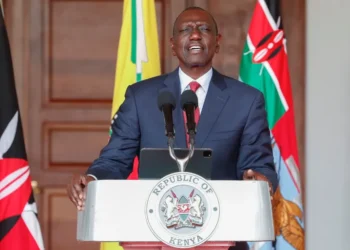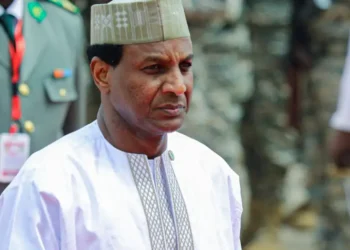The Executive Board of the IMF having completed the fourth review of Angola’s economic program supported by an extended arrangement under the Extended Fund Facility (EFF) has approved an amount of $487.5 million to be disbursed to Angola. This brings total disbursements of funds under the facility to about $3 billion.
The credit facility aims to restore external and fiscal sustainability, improve governance, and diversify the economy to promote sustainable, private sector-led economic growth. The IMF had previously approved a credit facility in efforts to mitigate the impact of COVID-19 and sustain structural reform implementation.
The multifaceted nature of the COVID-19 shock continues to negatively impact Angola’s economy and population. Oil production and prices remain weak, and the health and social impacts of the pandemic continue to be felt. The authorities in Angola have maintained a robust policy response in the face of these challenges and remain resolutely committed to the program.
Also, they achieved a prudent fiscal adjustment in 2020 that included non-oil revenue gains and restraint in non-essential expenditure, while preserving essential spending on health and social safety nets.
Other considerations by the board were that, Angolan authorities’ passage of the 2021 budget in December consolidated these gains and have also allowed the exchange rate to act as a shock absorber and have begun to implement a gradual shift towards monetary tightening to address rising price pressures..
Following the Executive Board’s discussion on Angola, Ms. Antoinette Sayeh, Deputy Managing Director and Acting Chair, issued the following statement:
“Despite the challenges from the ongoing COVID-19 pandemic, the Angolan authorities have demonstrated a strong commitment to sound policies under the IMF-supported arrangement. The authorities’ robust policy response has enabled Angola to weather large external shocks, most notably lower oil revenues, and mitigate their macroeconomic impact while protecting the most vulnerable.
“The stabilization of public finances remains the cornerstone of the authorities’ strategy. The authorities achieved strong fiscal adjustment in 2020. Their 2021 budget consolidates the non-oil revenue gains and expenditure restraint of the 2020 budget, while protecting priority health and social spending. These achievements help reduce the budget’s dependence on oil revenues.

The implementation of debt restructuring agreements and extension of the Debt Service Suspension Initiative through end-June 2021 will provide significant debt-service relief and help reduce risks related to debt sustainability. Given Angola’s sensitivity to oil price shocks, it is important that the authorities remain vigilant in managing these risks, Ms. Sayeh said.
After having eased the monetary stance to mitigate the COVID-19 shock, the National Bank of Angola (BNA) started to address rising inflationary pressures by tightening monetary policy. Further gradual tightening is needed to reduce inflation. Exchange rate flexibility has served as a valuable shock absorber during the crisis. Efforts are ongoing to develop a liberalized foreign exchange market.
She also made the point that, continuing progress in financial sector reforms is critical, particularly completing the restructuring of the two troubled public banks. Timely adoption of both the revised BNA Law and the revised Financial Institutions law is key to continuing this progress.
READ ALSO: World Bank to invest $5 billion in African Drylands





















